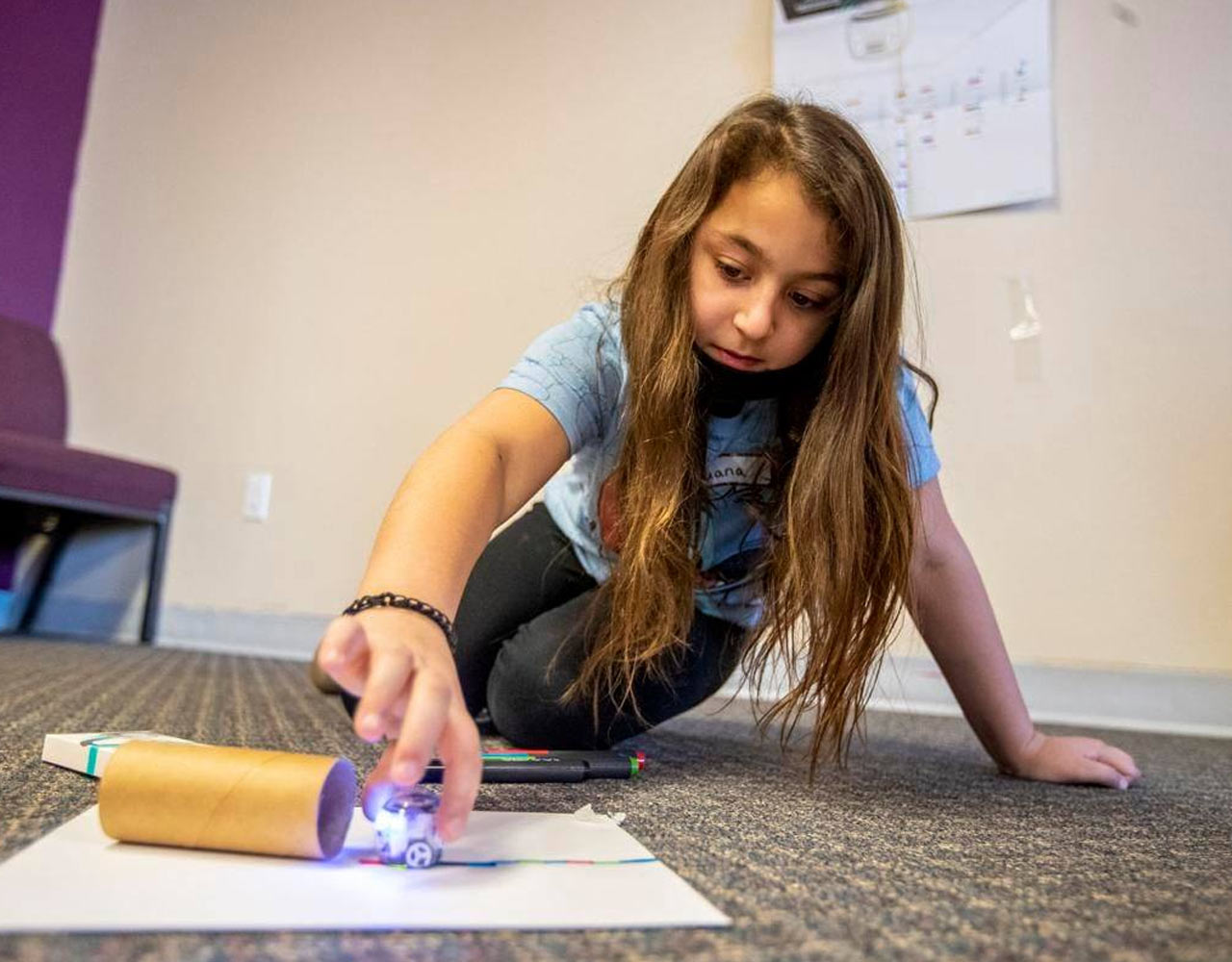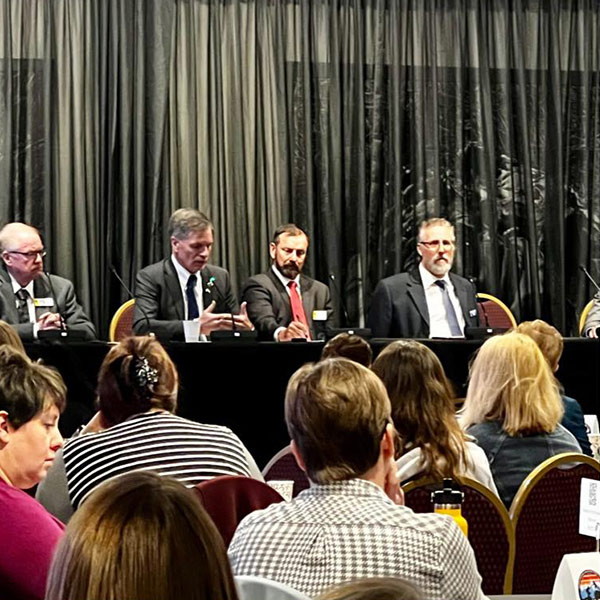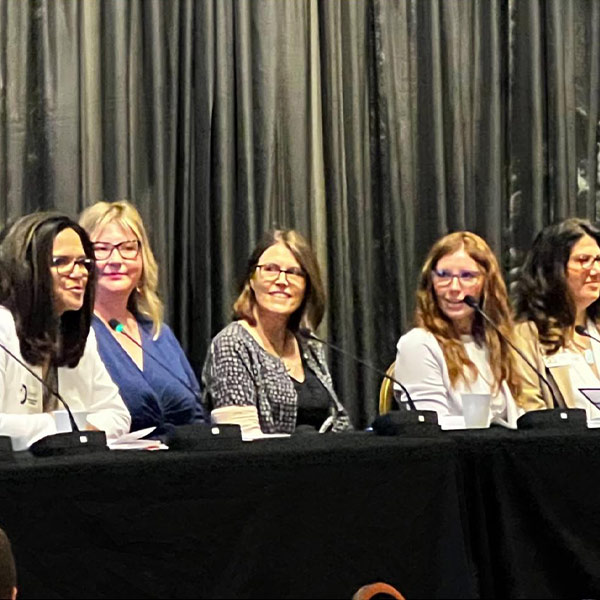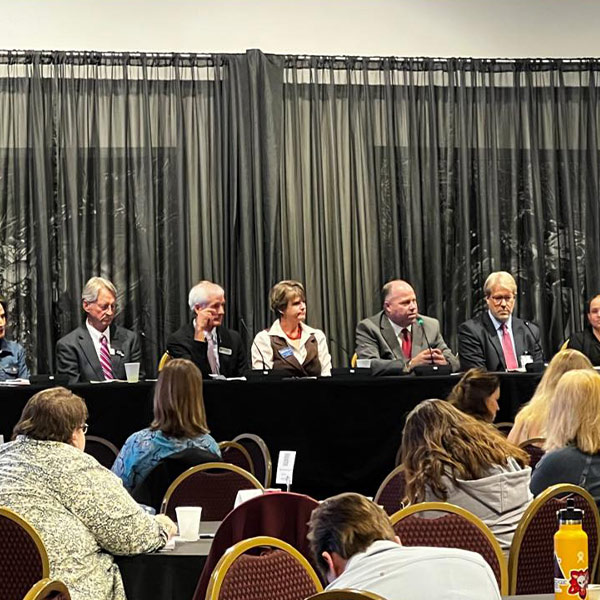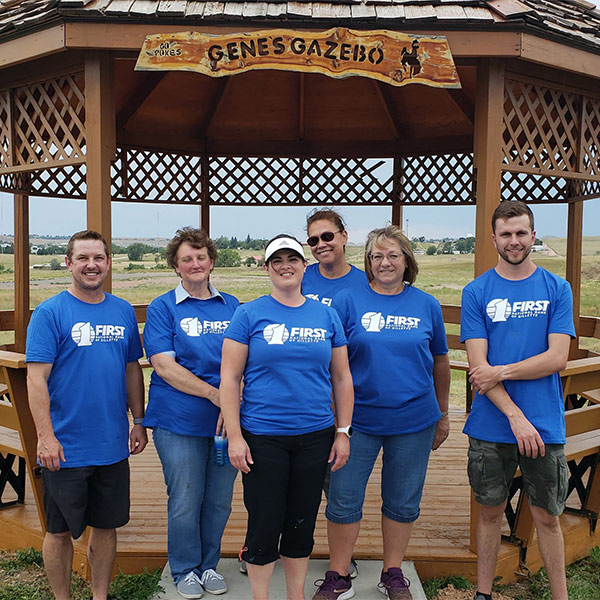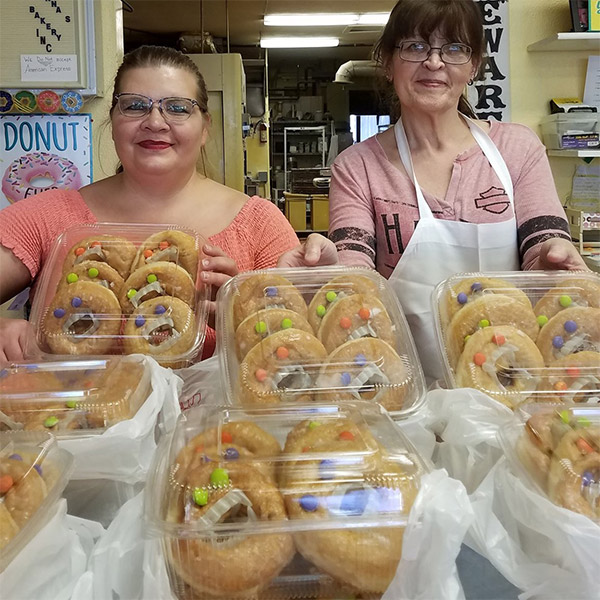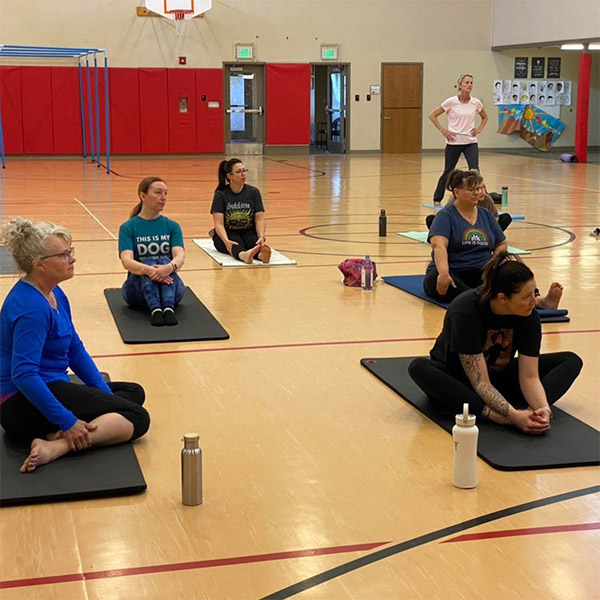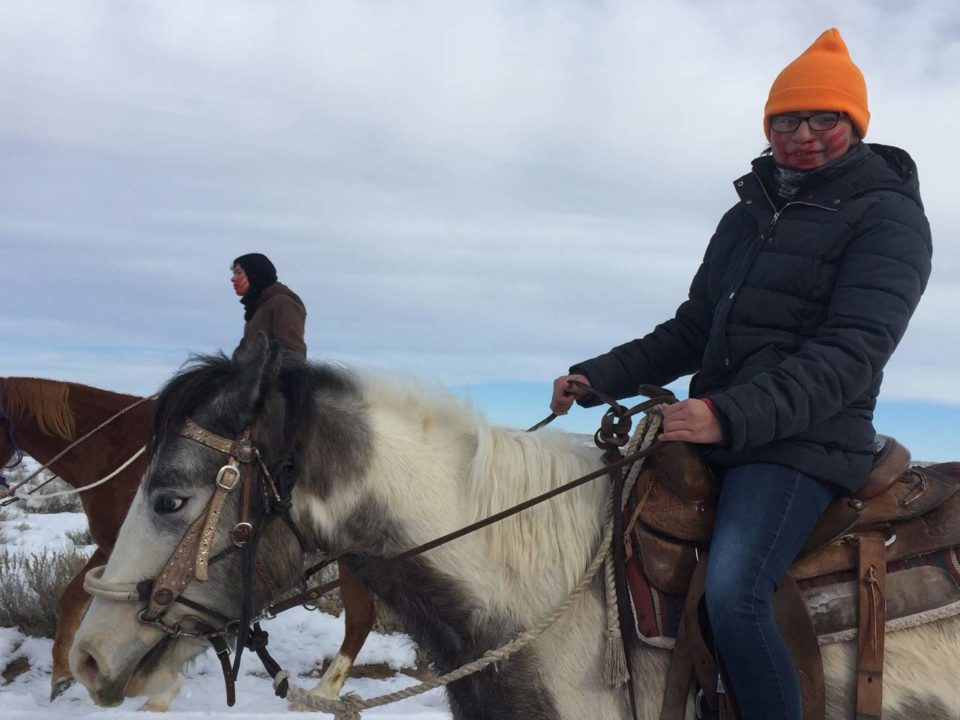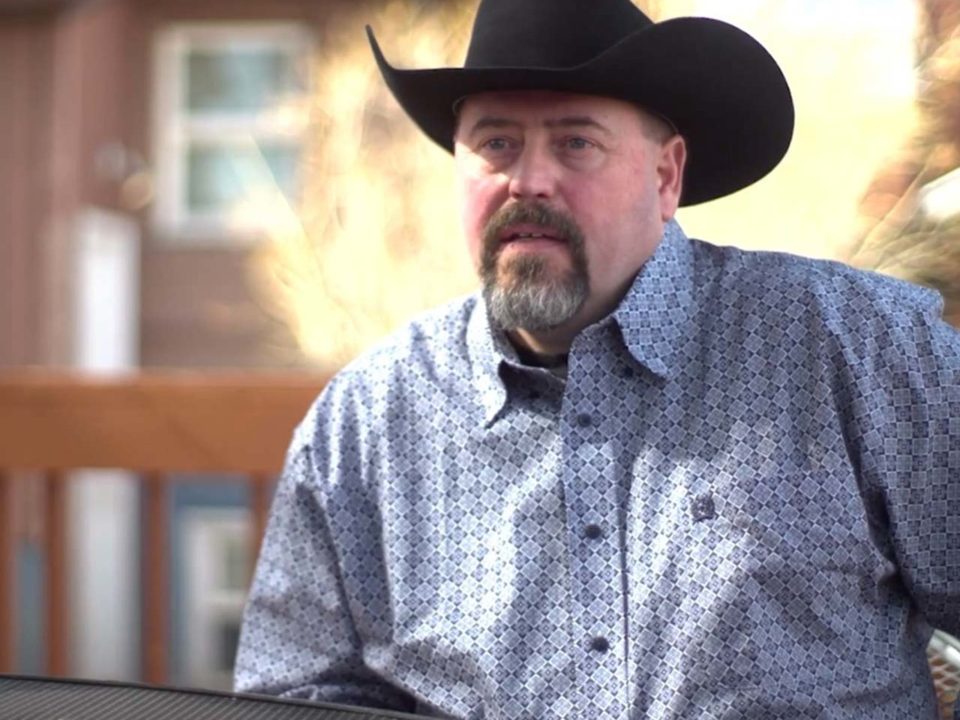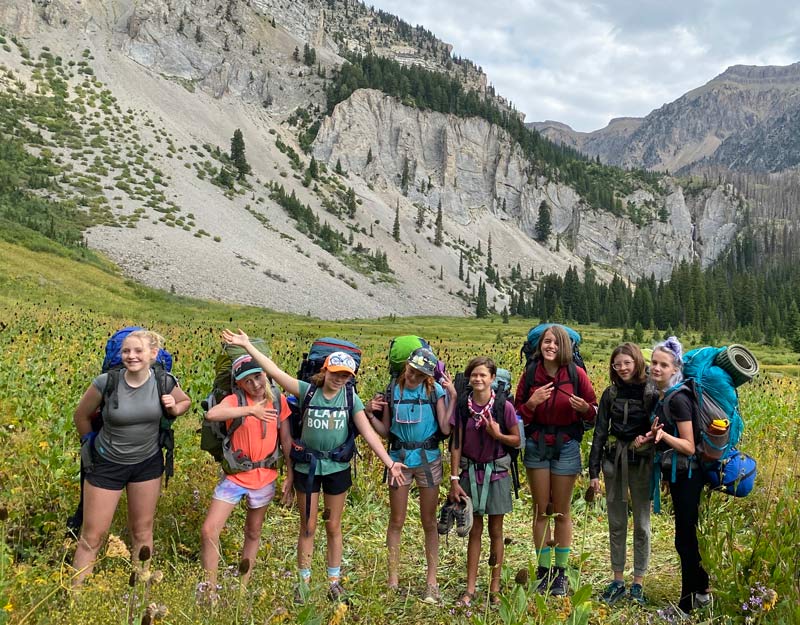Last week, Governor Mark Gordon hosted a mental health summit at Casper’s Nicolaysen Art Museum. The event sold out in just two days. As the Governor pointed out, this enthusiasm signals two things: the need for more robust, innovative mental health services in Wyoming is dire, and many people across the state are ready to roll up their sleeves and get to work.
“Mental health continues to be a rising concern for many in our great state. In 2020, Wyoming, sadly, had the highest rate of death by suicide in the nation,” Governor Mark Gordon observed. “In order to address the scope of the problem, we must be actively engaged in finding solutions. Building partnerships and enhancing collaboration will help deliver timely services to those experiencing difficulty accessing help.”
The summit’s keynote speaker, Dr. Rob Anda, highlighted his research around the lifelong consequences that stress and traumatic experiences can have on young, developing brains.
When Dr. Anda was conducting research at the CDC, he discovered a fascinating trend: people who suffered more stress — or, as he has come to label them Adverse Childhood Experiences (ACEs) — were significantly more likely to face a diversity of serious chronic health conditions throughout their lives. “From about 13,000 people in the Kaiser Health Plan where we did the study, we saw that those adversities — child abuse and neglect and things that we called household dysfunction, like growing up where there's mental illness or substance abuse, domestic violence, other issues like that in the home — where there's one, there tend to be multiple others,” explained Dr. Anda. And the impacts on a developing brain can be profound.
“We counted the number of 10 specific adversities that people experienced and began to look at a wide variety of health and social issues. It was really stunning at the time; it was hard to believe that as the ACE score went up, many major health and social problems increased in prevalence almost across the board.”
Dr. Anda encouraged the diversity of summit attendees at the conference to see this information as hopeful, not discouraging. “I think the most important thing that it boils down to, is how do we prevent the experiences — understanding that these experiences are transmitted from person to person, kind of like a virus.”
“Understanding this empowers people that have experienced adversity to be able to take a look at themselves and be compassionate with themselves. And it also, I think, motivates many parents and people that are interacting with children to become motivated to stop the cycle of transmission from one generation to the next. I think that's the most powerful thing.”
Preventing stress and trauma, as well as intervening as early as possible in a stressful situation can help people of all ages avoid more serious levels of mental health crisis. A recent documentary series produced by PBS Wyoming, A State of Mind, delves into the serious impact of suicide and mental health challenges in the state, as well as highlighting groups that are fighting back against the challenge.
Organizations that have been working for decades around the issue, like the Youth Emergency Services (Y.E.S. House) in Gillette, agree that new solutions are necessary to keep Wyomingites safe. “Our organization started in 1976, so we've been in the community for almost 50 years,” said Clark Fairbanks, Assistant Director of Y.E.S. House. “Our services have really expanded and diversified to try to meet the needs of children and families. Last year, we served over 1200 children in northeast Wyoming. That ranges from prevention services, after school programming for elementary children, STEM activities to mentorship, to an emergency shelter, which provides suicide safety and supervision — from 24 hour on-call therapy to residential treatment on the far end.”
Ryan Anderson, Y.E.S. House Executive Director, emphasized that continuing to enhance partnerships and erode the stigma around seeking mental health support is key to preventing suicides. “I mean, it's no secret that a lot of people are averse to seeking out a mental health or therapeutic type of intervention. Making sure that folks know what their options are out there and that they have the ability to seek those services is key. We work really closely with a lot of different community partners. Whether it's our school district, our hospital, juvenile probation, Department of Family Services, and more. It’s the network that helps connect youth to the resources they need.”
The Governor’s Mental Health Summit, one event in a series of efforts around expanding access to mental health resources across Wyoming, is a tangible step towards building stronger, larger networks of support throughout communities.
“We were proud to sponsor Governor Gordon’s Mental Health Summit, as well as support organizations like Y.E.S. House” said Molly Hughes, Executive Director of the Hughes Charitable Foundation. “This issue is absolutely one of the most pressing that we face in Wyoming. What’s so impactful about an event like this is that it facilitates not only education, but also collaboration among organizations, communities, and individuals. Together, we can spread awareness, diminish the stigma around seeking help, and ensure that resources are readily available for anyone who needs them.”
The summit was live streamed for viewers who were unable to attend, and the full video is available to watch here.
